Besides mountains, Sabah has so much to offer its visitors from vast clear blue waters to rare native wildlife. You will never be bored when you visit this hidden gem of Malaysia.
How is Halal Skincare Changing Today?
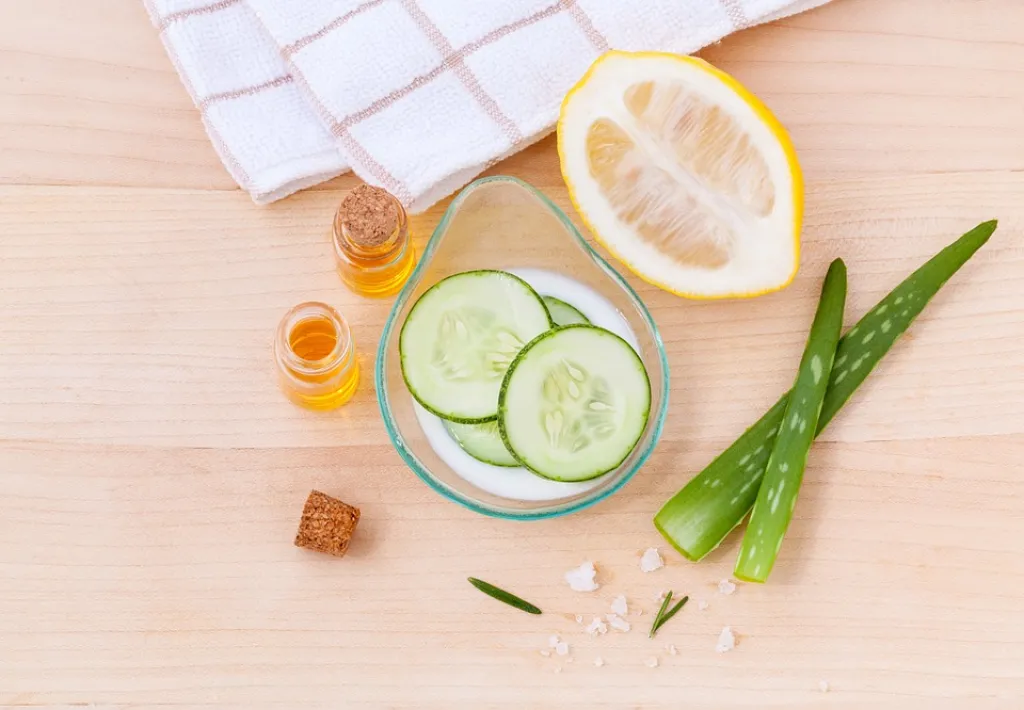
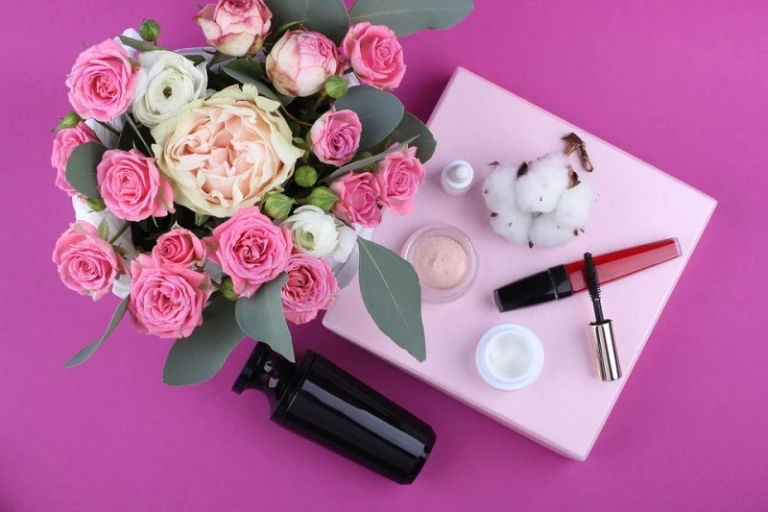
Once upon a time, the term “halal” was mainly attributed to food and whether it’s permissible for consumption in accordance with Islamic laws. These days, the term “halal” has expanded to encompass numerous aspects of one’s lifestyle – halal makeup, halal nail polish and halal perfumes.
The concept of “halal” beauty has taken the globe by storm and recently birthed the concept of halal skincare. Fun Fact: Halal cosmetics and personal care products have emerged as the fastest-growing consumer segment in Malaysia alone!
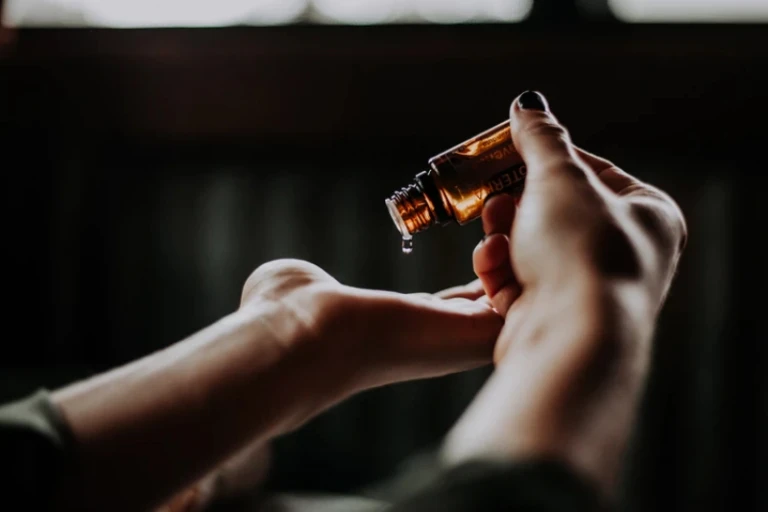
Skincare is a huge part of one’s daily routine. Muslim women (and even men!) can now take comfort in the fact that these skincare products can be easily removed for ablution and at the same time, are gentle on the skin.
Although the halal certification process can take up to two years, more brands are recognising the value of halal skincare and the market that comes along with it. Even brands based in Japan, Korea and the far West have resorted to starting halal-friendly functional skincare lines.
What is halal skincare?
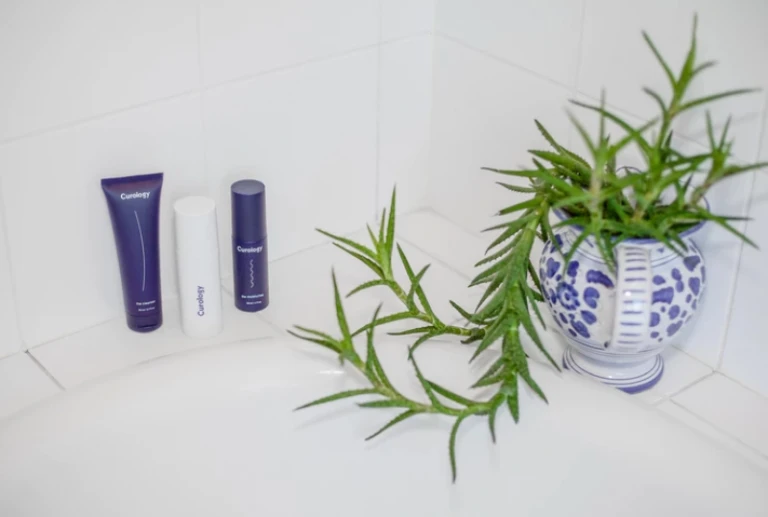
In essence, halal skincare refers to products that use natural plant-derived ingredients, are free from animal by-products or alcohol and are paraben-free. These products include your typical everyday ones such as serum, creams, mask, gels, moisturizers, toners.
Ingredients derived from pigs, dogs, dead animals, blood, alcohol and animals that were not slaughtered as per Sharia Law create haram products.
Scholars of the Malaysian National Fatwa Council (MNFC) have issued a fatwa that states:
“Use of all cosmetics and skincare products which contain ingredients from impure animals are haram for a Muslim.”
Besides adhering to ingredient restrictions, halal-friendly skincare products must be manufactured using equipment and materials that comply with Islamic laws.
Is halal skincare the same as vegan-friendly skincare?
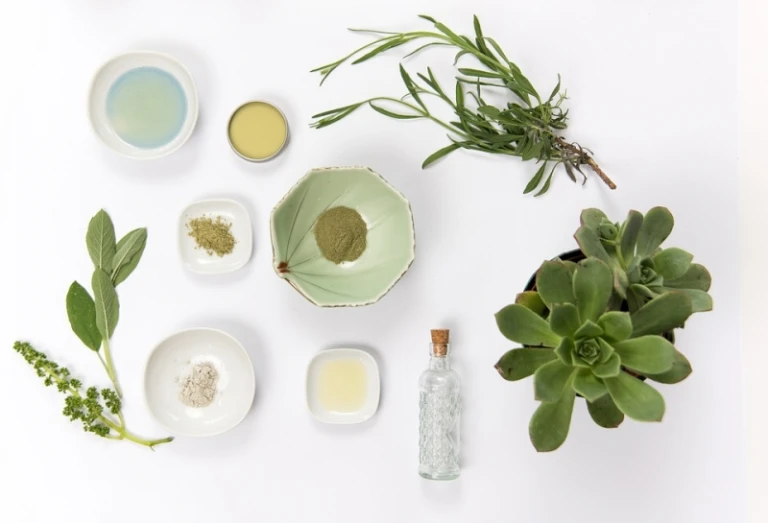
Halal skincare cannot be exactly likened to vegan-friendly products as the former might not necessarily be devoid of animal ingredients. Propolis, beeswax, honey, keratin and ingredients obtained in a “halal” manner may still be present.
Vegan-friendly products eliminate all animal-derived ingredients and are made strictly from plants, minerals and other safe synthetic ingredients.
Advantages of halal skincare
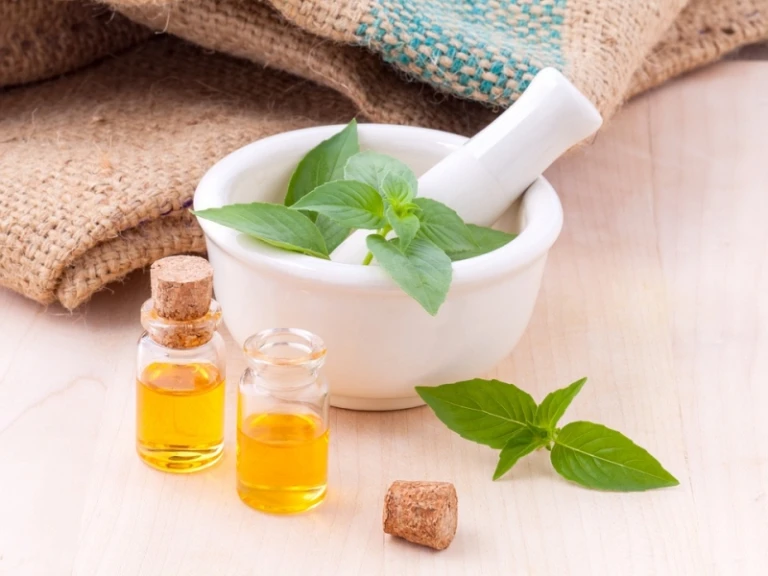
“The halal is clear and the haram is clear, and between them are matters unclear that are unknown to most people. Whoever is wary of these unclear matters has absolved his religion and honour. And whoever indulges in them has indulged in the haram.” [Bukhari & Muslim]
The act of consciously choosing halal products is noble and an avenue to reap the rewards of performing good deeds for Muslims. Non-Muslims can also benefit from halal products. These products adhere to the highest levels of cleanliness from the manufacturing stage right up to the actual packaging stage.
Types of non-halal ingredients used
Gelatine
This jelly-like substance is a standard protein commonly used in cosmetics. Gelatine comes from boiling the skin, tendons, ligaments and bones of pigs. Pig-derived ingredients are impure which results in by-products that cannot be used.
Mufti Taqi Uthmani has clarified the issue of gelatine products. He explains that the “skin, which undergoes a purification process, and bones of halal animals are pure irrespective of their dhabihah status.” Hence, gelatine obtained from cows is permissible for external use.
Lanolin
Lanolin, also known as wool grease or wool wax, is derived from sheep’s wool. The ointment-like substance is made from the sheep’s sebaceous gland. It is a common animal ingredient in skincare products and acts as an effective emollient for hair, skin and nails.
A sheep slaughtered according to Islamic laws, can be verified as halal. Therefore, it is permissible to use the ingredients derived in cosmetics. However, the matter of concern arises when there is uncertainty over how the sheep were being slaughtered and if the animal was alive during the wool-shedding.
Collagen
Remember all those advertisements boasting vibrant, youthful-looking skin? Collagen is the secret behind that. It is a commonly-used ingredient in skincare products, especially in anti-ageing creams and facial moisturizers. Collagen enhances one’s complexion by improving elasticity and firmness so that the skin remains supple sans all the wrinkles.
The process of obtaining collagen usually involves the extraction of a marine or bovine source, but some manufacturers also tap on pig collagen. It is permissible to use collagen products as long as the source is a halal animal.
Alcohol
Most halal skincare products will reflect the label “alcohol-free”. However, in most skincare products, you will be able to spot some form of alcohol listed on the ingredients list. Common examples include ethanol, isopropyl alcohol, alcohol denat and methanol. They function to make creams feel lighter, allow other ingredients to penetrate the skin easily and act as a preservative.
Fatty alcohols obtained from natural ingredients like coconut and nuts are permissible for use. These fatty alcohols include cetyl alcohol made from coconut oil and stearyl alcohol which is made from coconut or vegetable oil. It is also permissible to use products that contain other forms of alcohol such as benzyl alcohol.
Halal skincare in Singapore
KGlow Skinlab
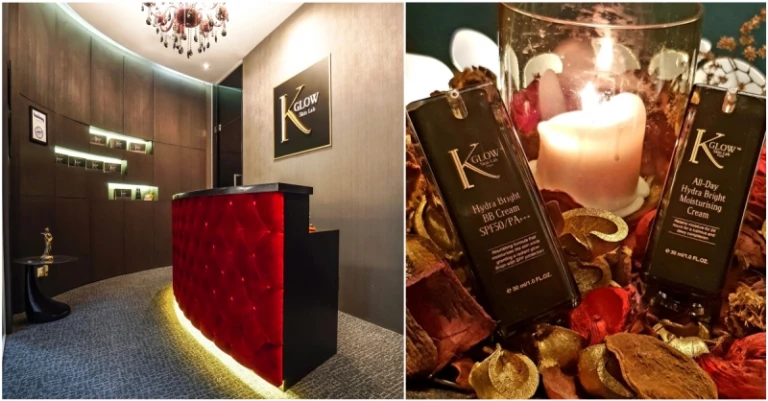
You’ll be pleased to know that KGlow Skinlab’s products are paraben-free, paraffin-free, cruelty-free, efficacy tested and microbiological-certified! The brand has even gone a step further to provide halal facials for Muslim customers, in the comfort and privacy of separate rooms. The beauty services incorporate halal-friendly products that will give you a peace of mind while you luxuriate.
Sayeeda
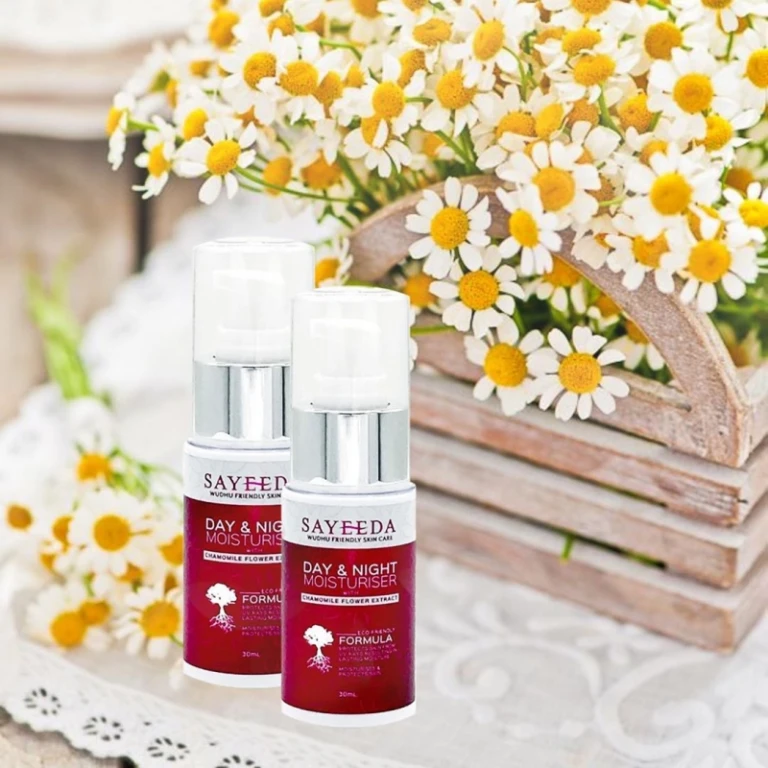 Image credit: Sayeeda
Image credit: SayeedaThis wudhu-friendly halal skincare line is formulated with water-soluble properties which allow for easy makeup removal. Benefit from their wide array of products such as moisturiser, DD cream, cleanser and body lotion. You don’t have to worry about lugging around your makeup removers whenever you need to clean off your makeup!
Klarity
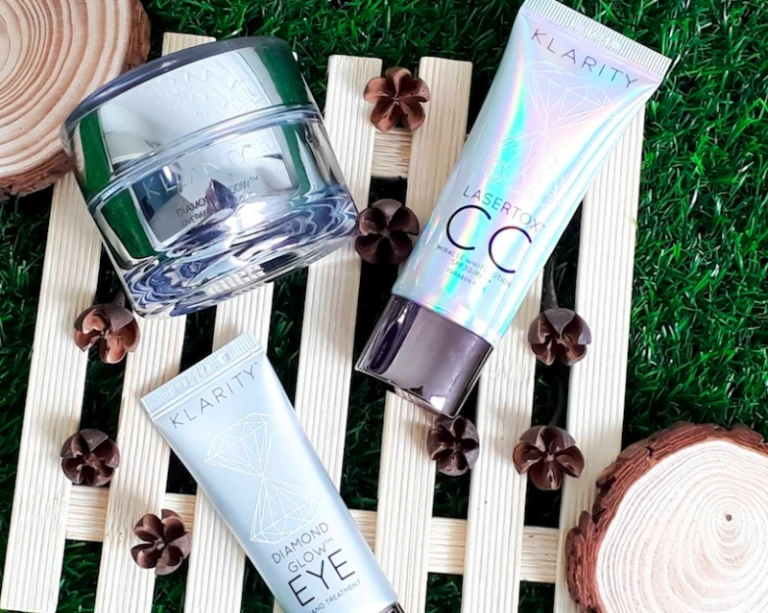 Image credit: Klarity
Image credit: Klarity
Klarity is the first brand in Singapore to offer halal-certified skincare (by the Korean Muslim Federation Halal Committee). Klarity founder Karine Estelle wanted to provide products that cater to the needs of Muslim customers, based on religious requirements.
Non-Muslim users can also benefit from skincare products that are less harmful and are cruelty-free. Currently, Klarity only has two halal-certified products – the Miracle White CC Lotion and the Lasertox V-Line Shape Up.
Also read: 10 Halal Makeup Products For The Modern Muslim Woman
Published at
About Author
Nur Sofia
Subscribe our Newsletter
Get our weekly tips and travel news!
Recommended Articles
10 Hidden Gems of Sabah, Malaysia 10 Muslim Footballers That Will Inspire You And Your Goals HalalZilla consults the great archives of football to handpick our top Muslim players who’ve ever laced a pair of boots in the big leagues – especially those you didn’t know were Muslim!
10 Muslim-Friendly Islands in Indonesia Many travellers have either been to Bali and Lombok, or are planning a trip there – they are the most popular tourist destinations for Muslim and non-Muslim alike. . While these islands are tourist-friendly and especially Muslim-friendly, there are many other islands in Indonesia that are just as beautiful and have lots to offer. Check […]
12 Culture Shocks You’ll Experience During Umrah Welcome to the land of blessings & calmness ~
2019 Emirates FA Cup Final Winners Will Celebrate With Non-Alcoholic Champagne Regardless of the team you support, it’s heartening to know that the winners will be offered non-alcoholic champagne to cater to those who don’t drink.
Latest Articles
The Ultimate Bandung Travel Guide for Muslim Travelers, from Culinary Gems to Hotels Explore Bandung with confidence!
10 Must-Visit Halal Suhoor Spots in Bandung, Some Open 24/7 Make your Ramadan mornings easier and tastier.
Best Affordable All-You-Can-Eat Hotel Iftar Buffets in Jakarta 2026 hotels have become a top choice for Ramadan gatherings!
10 Best 24-Hour Halal Eateries in Singapore for Suhoor and Iftar Check out our curated list of 24-hour halal restaurants in Singapore for delicious Ramadan dining.
PokéPark KANTO: Muslim Traveler's Guide to Tokyo’s Newest Pokémon Theme Park A new adventure awaits!

